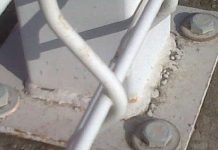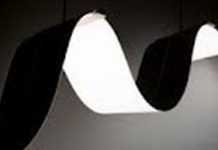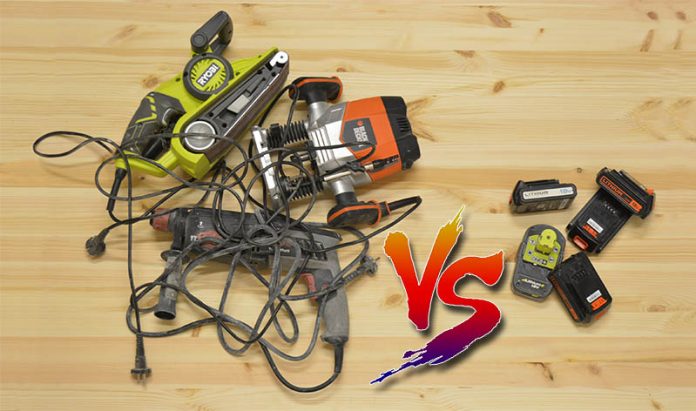
If you are a true DIY enthusiast and you like to do little by little with your equipment, surely on some occasion you have hesitated between choosing a corded power tool or its cordless version or, in other words, battery-powered.
At BricoBlog we like to test both power tools (corded and cordless) and manual ones, for this reason we have created a specific section with a multitude of content. So find all the tools here in our Tools and Machines section.
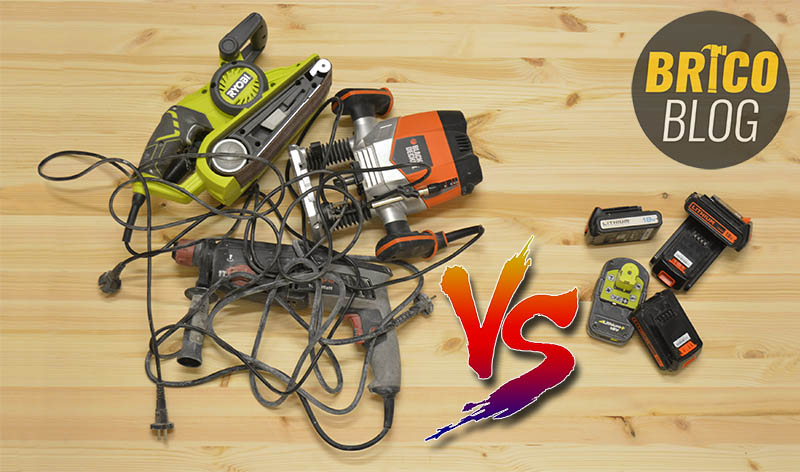
Power tools VS battery tools.
We will dedicate this article to see what advantages corded power tools give us over cordless ones and vice versa.
Generalities
Corded power tools have the advantage of a long history over the years, which gives them great hegemony over battery-powered tools.
However, the latter much more recent have come stomping. Although it is true that in its beginnings, approximately 20 or 30 years ago, the gap that separated them from each other was enormous.
My early experience with battery tools increased my reluctance to use them. The first tools of this type that I acquired, I am referring to the DIY segment, were practically useless.
The first Nicad batteries and, later, the NiMH batteries were completely inefficient for the mission entrusted to them, since they had very little autonomy and, above all, the power of the tool decreased as the battery charge decreased.
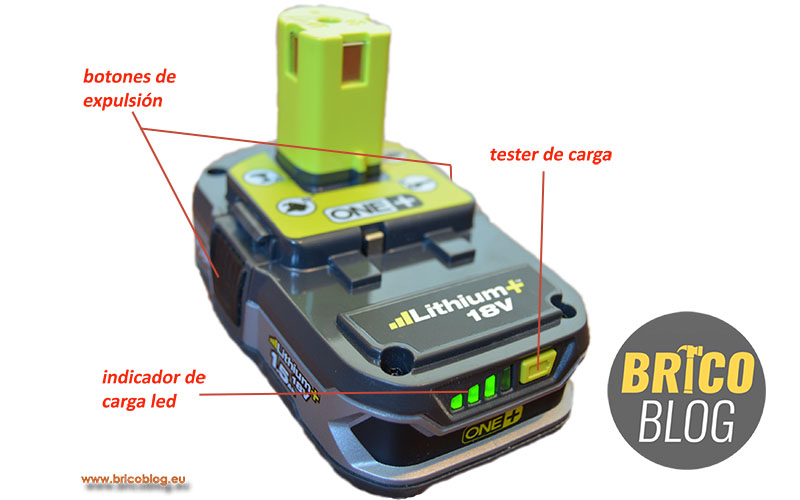
External parts of the lithium ion battery.
However, about 10 years to this part is when the revolution of battery tools has truly arrived, thanks to lithium technology. Lithium-ion batteries give the tool greater power, longer life and greater efficiency in the sense that the tool maintains its power at almost 100% until the end of the charge. They also keep the load intact during long periods of inactivity.
Beyond the features and characteristics of each tool, the power of the electric ones is measured in watts, and that of the cordless ones in volts. As well as the autonomy of the latter, in Ah (amps). It is super important to take this aspect into account when purchasing a power tool.
Differences between power tools and battery tools
Next we will see the main differences between them.
The wire
The cable is usually a disadvantage both when handling the tool and when storing it. Many tools all of them with cable, it can become a real chaos.
A corded tool limits us to necessarily having a power outlet nearby. This is one of the great advantages of battery tools, as they make it possible to use them in locations where there is no electricity.
However, there are certain types of tools that, due to their own characteristics, only perform their function 100% in their cable version.
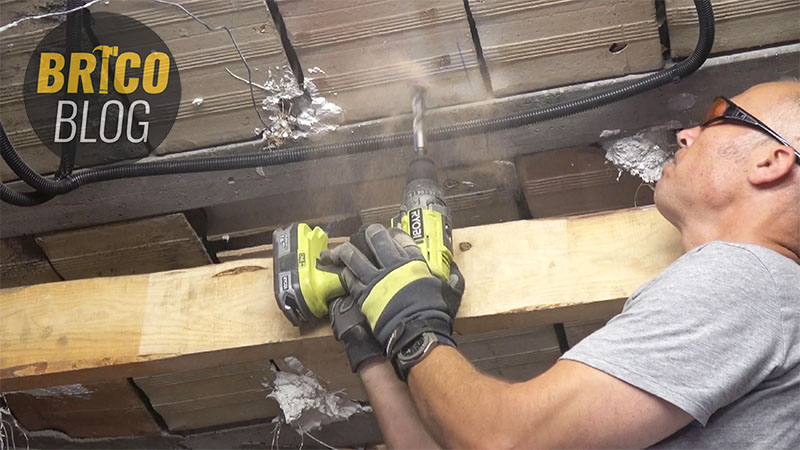
The 18V battery drill has absolutely nothing to envy to the electric one.
A battery for everything
A large number of brands have designed and developed their version of cordless tools so that they can all work with the same battery. In other words, a single battery can be attached to its entire range of tools, which provides the user with enormous savings.
Battery life
Although lithium-ion batteries are extremely durable as they withstand more than 1,000 charge cycles, they have a certain useful life like any battery, be it a car, computer, mobile, etc. This may not be a problem for most DIY enthusiasts, or yes, since when the time comes to have to replace it, it would entail a not entirely insignificant expense. This does not happen with corded tools.
Conclusions
Battery tools provide, in addition to autonomy, enormous comfort and freedom. Even if you are using it in the workshop, it is much more convenient to use than corded tools. In addition to being much faster to start up and store later.
Although there are some types of power tools that are currently winning by a landslide, there are other battery-powered tools that have little or nothing to envy, such as the drill with or without a hammer, the screwdriver, the impact wrench, the electric hammer, the nailer and some more.
There is one last detail regarding battery tools. Brushless technology, which eliminates the use of brushes in the tool, which reduces its noise level and increases its power.
While corded power tools are a safe bet, there are certain battery-powered tools worth having in your DIY kit.
.


